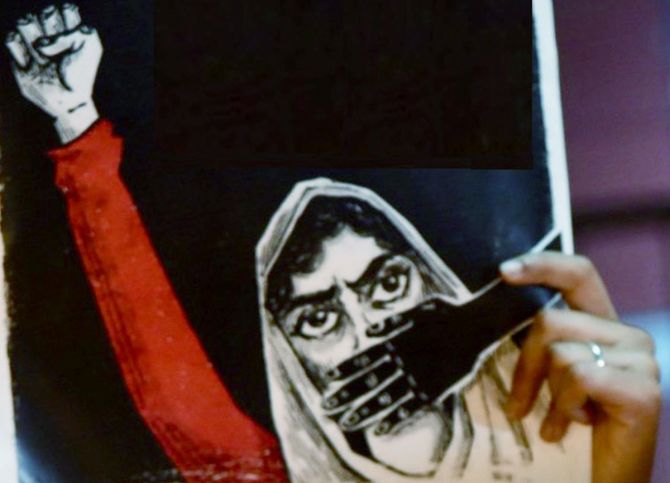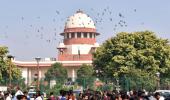Sedition cases spiked by 160 per cent between 2016 to 2019 and conviction rate in such matters stood at just 3.3 per cent in 2019, according to an analysis of official data by a rights lawyer.

The National Crime Records Bureau data, referred to and quoted by rights lawyer Vrinda Grover, assumes significance in view of the observations of an apex court bench headed by Chief Justice N V Ramana that there have been “enormous misuse” of the colonial era penal law on sedition and very low rate of conviction in such cases.
Grover, using the NCRB data, told PTI that there has been a consistent rise in the number of sedition cases being filed, and between 2016 to 2019, there has been a 160 per cent increase in the number of cases filed for sedition.
On the issue of cases culminating in convictions, she again referred to data and said in 2019, 30 cases of sedition were decided, with 29 acquittals and one conviction and the “rate of conviction is abysmal, being 3.3 per cent”.
Concurring with Grover, senior advocate Geeta Luthra said that the conviction rate is low in such cases because the basic principle and ingredient for invoking the law is not there in most cases.
“The prosecution may not even produce evidence or file charge sheet because their intention is only to put someone behind the bars. It is not that the government wants to necessarily punish somebody. It is for sending a message across and making dissent disappear,” she added.
Mrinal Bharti, lawyer and senior partner in MZM Legal firm, who represents media houses and journalists facing sedition cases, said the cases are foisted by the government of the day to quell the dissent.
“The reason for poor conviction rate is obvious as there was hardly any material to establish the offence and moreover, police do not investigate such cases properly,” he added.
Grover also attributed the spike in sedition cases to the rising authoritarianism in governance and claimed that the State Executive is increasingly resorting to it to silence any criticism, questions, or dissent raised by citizens through the exercise of freedom of speech.
She further said that out of 30 cases of sedition decided in 2019, there was conviction in only one case, adding that the “rate of conviction is abysmal, being 3.3 percent.”
Calling it as a “vestige of colonial rule”, she said that the State is foisting sedition cases to silence citizens, intimidate the public, and throttle democracy.
“Sedition cases foisted based on trumped-up charges which fall upon judicial scrutiny; often after people have suffered long incarceration as undertrials,” she added.
Luthra, however, said that even though the law is being misused rampantly, more and more people are becoming conscious that it should be abolished.
“I cannot tell if it is being misused or invoked more, but I definitely think that people are becoming more conscious,” Luthra said about the law the existence of which was questioned by the apex court for the last 75 years.
The top court asked the Centre why it was not repealing the provision used by the British to “silence” people like Mahatma Gandhi to suppress the freedom movement.
The non-bailable provision makes any speech or expression that brings or attempts to bring into hatred or contempt or excites or attempts to excite disaffection towards the Government established by law in India a criminal offence punishable with a maximum sentence of life imprisonment.










